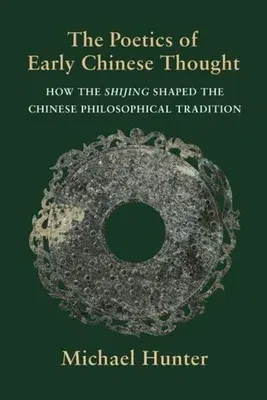Michael Hunter
(Author)The Poetics of Early Chinese Thought: How the Shijing Shaped the Chinese Philosophical TraditionPaperback, 13 July 2021

Qty
1
Turbo
Ships in 2 - 3 days
Only 3 left
Free Delivery
Cash on Delivery
15 Days
Free Returns
Secure Checkout

Print Length
240 pages
Language
English
Publisher
Columbia University Press
Date Published
13 Jul 2021
ISBN-10
0231201230
ISBN-13
9780231201230
Description
Product Details
Author:
Book Format:
Paperback
Country of Origin:
US
Date Published:
13 July 2021
Dimensions:
22.61 x
15.24 x
1.78 cm
Genre:
Asian - Chinese
ISBN-10:
0231201230
ISBN-13:
9780231201230
Language:
English
Location:
New York
Pages:
240
Publisher:
Weight:
340.19 gm